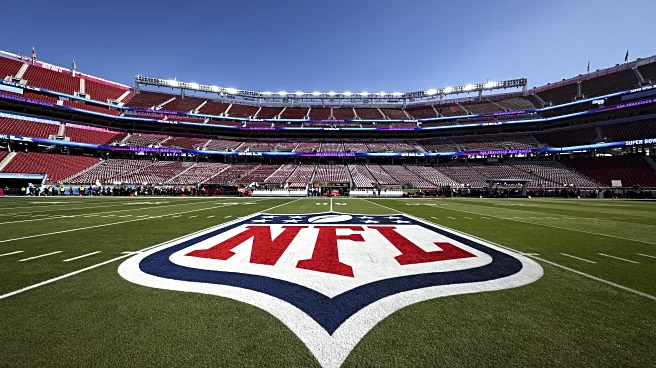Rapid Read • 8 min read
Functional beverages, a category of non-alcoholic drinks, are gaining popularity due to their health benefits. These beverages include sports drinks, energy drinks, herbal teas, and more, each containing bioactive components from various sources like plants and animals. They are designed to enhance hydration, energy recovery, and overall health. Sports drinks, for instance, provide electrolytes and carbohydrates to improve athletic performance and hydration. Energy drinks, often consumed by young people and athletes, contain ingredients like caffeine and B vitamins to boost concentration and endurance. Herbal drinks, made from plant parts, offer antioxidant and anti-inflammatory benefits. Despite their advantages, some functional beverages, such as kombucha, lack clinical evidence supporting their health claims.
AD
The rise of functional beverages reflects a growing consumer interest in health and wellness. These drinks offer convenient ways to incorporate beneficial nutrients into daily routines, appealing to those seeking alternatives to traditional supplements. The market for functional beverages is expanding, driven by innovations in product formulations and increased consumer awareness. However, the health claims associated with these beverages require careful consideration, as excessive consumption can lead to negative effects, such as weight gain from high-carbohydrate sports drinks. Understanding the ingredients and their impacts is crucial for consumers aiming to make informed choices about their health.
As the functional beverage market continues to grow, further research and development are expected to enhance product offerings and validate health claims. Companies may focus on creating beverages with scientifically proven benefits, addressing consumer concerns about safety and efficacy. Regulatory bodies might also play a role in ensuring accurate labeling and marketing practices. Consumers can anticipate more innovative products, such as those incorporating postbiotics, which offer gut health benefits without the drawbacks of prebiotics. The industry is likely to see increased competition as brands strive to meet the demand for multifunctional, health-promoting beverages.
The functional beverage trend highlights broader shifts in consumer behavior towards health-conscious living. It underscores the importance of transparency in product labeling and the need for scientific validation of health claims. Ethical considerations arise regarding marketing practices and the potential for misleading consumers. Additionally, the trend may influence dietary habits, encouraging a move away from traditional supplements towards more integrated, lifestyle-friendly options. As the market evolves, stakeholders must balance innovation with responsibility, ensuring that products deliver genuine health benefits without compromising consumer trust.
AD
More Stories You Might Enjoy












